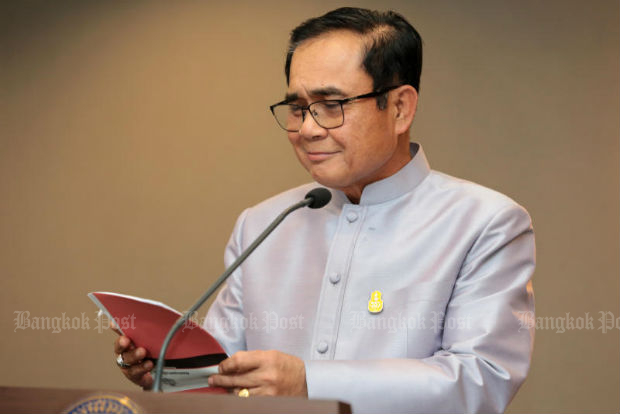
The Pheu Thai Party on Wednesday urged the ruling junta to end a ban on political activity since the 2014 coup, saying it feared a delay could signal that a general election promised for next year might be pushed back yet again.
The rare statement from the party whose government was ousted in 2014 comes amid growing calls from groups of all political stripes to scrap the ban ahead of the November 2018 election the junta has promised.
"The junta's continued ban on political activity could provide a channel or excuse to delay elections again, as has happened before many times," it said after an announcement by Prime Minister Prayut Chan-o-cha that the ban would stay.
The junta had said it would consider lifting the ban, which had drawn condemnation from Western governments and the United Nations, following the Oct 29 end of a funeral ceremony for King Bhumibol Adulyadej.
But after a cabinet meeting on Tuesday, Gen Prayut, who led the 2014 coup, said the ban would be retained because Thailand was not ready for political conflicts.
Government spokesman Sansern Kaewkamnerd said the junta, formally known as the National Council for Peace and Order (NCPO), did not want to hold on to power.
"The NCPO has no such thought to not return power to the people, but we have to wait until the country is more peaceful first," he told Reuters.
Other political parties echoed Pheu Thai's call.
"Parties should at least be allowed to hold meetings to select new board members," said Nipit Intharasombat, a deputy leader of the Pheu Thai's rival Democrat Party.
The continued ban lets the military gain popularity before the election, academic Titipol Phakdeewanich told Reuters.
"With the political ban in place, people only receive one-sided information, allowing the NCPO to build its credibility and discredit other parties," said Mr Titipol, the dean of political science at northeastern Ubon Ratchathani University.
Although Gen Prayut cannot stand for election, a new military-backed constitution offers a route for him to be chosen as "outside prime minister".